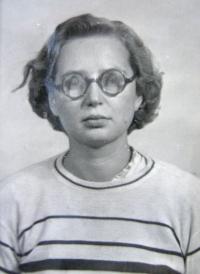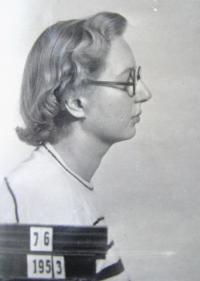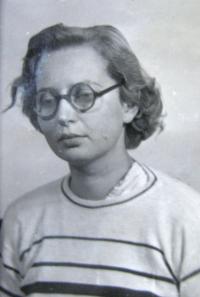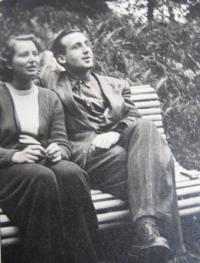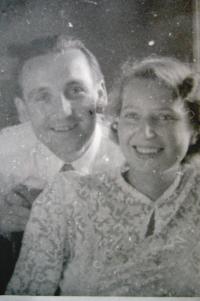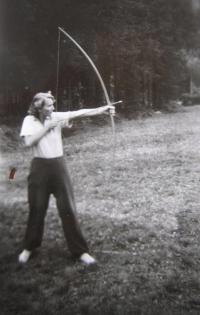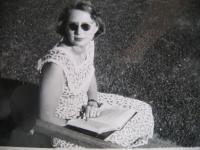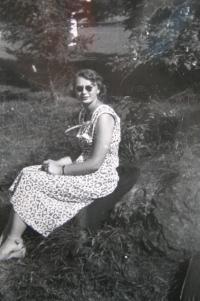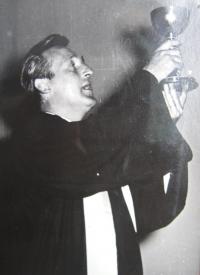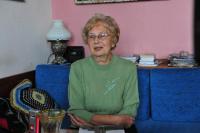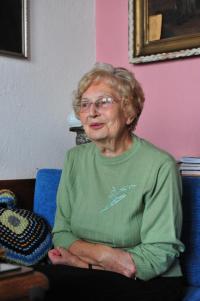“For those who love God everything serves the good”

Download image
Eva Mádrová was born on 9 July, 1927, in Brno. Her father, Miloslav Kopřiva, was a professor at the University of Technology in Brno. Eva’s mother Anna, née Leherová, was at home. In the thirties, her father was a city architect in Košice and Eva completed her elementary education there in 1938. When things began heating up in Slovakia, the mother and daughter returned to Brno. Eva attended a grammar school back in Brno and after her graduation continued with university studies of philosophy and history at the Philosophical Faculty. She joined the Academic Club Tábor, a student platform growing out of the intellectual climate of the Czechoslovak Hussite Church. There she met her husband, Pastor Adolf Mádr. She started to teach at a secondary school in Vranovice and in September 1951, she was transferred to a high school at the Institute for the physically dysfunctional in Brno. Eva Mádrová has since her university studies moved in circles of friends who have very strong attitudes toward the communist regime. Apart from her classmate Miroslav Káňa, it was particularly Zdeněk Kessler. Kessler - together with his colleagues from an informal post-war political club - began to systematically collect and archive contemporary information about the political and economic situation in Czechoslovakia, which he was trying to send abroad. Eva worked as the intermediary. She also wrote an article in defense of the ideas of Thomas Garrigue Masaryk. The group (sometimes known as POP) also published a clandestine magazine called “Flame”. Its activities, however, were monitored from the beginning and they became infiltrated by the secret state police (StB). On 26 November, 1953, the secret police agents came for Eva Mádrová. She was originally confined in Prague-Ruzyně, later in Brno where she waited for her trial. The trial took place on 19 March, 1954, in Brno. Eva Mádrová was sentenced to four years of heavy prison for high treason and espionage. She further lost her civil rights for five years, was deprived of half of her property and had to pay a cash fine of 1000 Czech Crowns. Two and a half hard years in Communist prisons and camps in Pardubice and Želiezovce lay ahead of her. She was, however, eventually paroled in August 1956. Coming home was, nevertheless, not the same as returning to freedom. Mrs. Mádrová had a hard time looking for a job. The situation was resolved for a time with the birth of her sons. Then she managed to get at least a place in a warehouse. She was later transferred to the services department of the city of Brno, where she worked till 1973. During the relaxation of the political situation in the second half of the sixties, Eva earned her diploma in psychology, and from 1973 until the age of 73, she worked in pedagogical and psychological counseling. In the beginning of the nineties, together with Luděk Skála and other members of the Czechoslovak Hussite Church, she set up a foundation, which later became the association “Betanie”. This association is engaged in Christian aid with the aim of helping those in need, especially elderly people. Today this association - among other things - runs the Villa Martha, the home for elderly people in Hrušovany near Brno. She passed away on 29 November, 2009, shortly before the official opening of Villa Martha.
